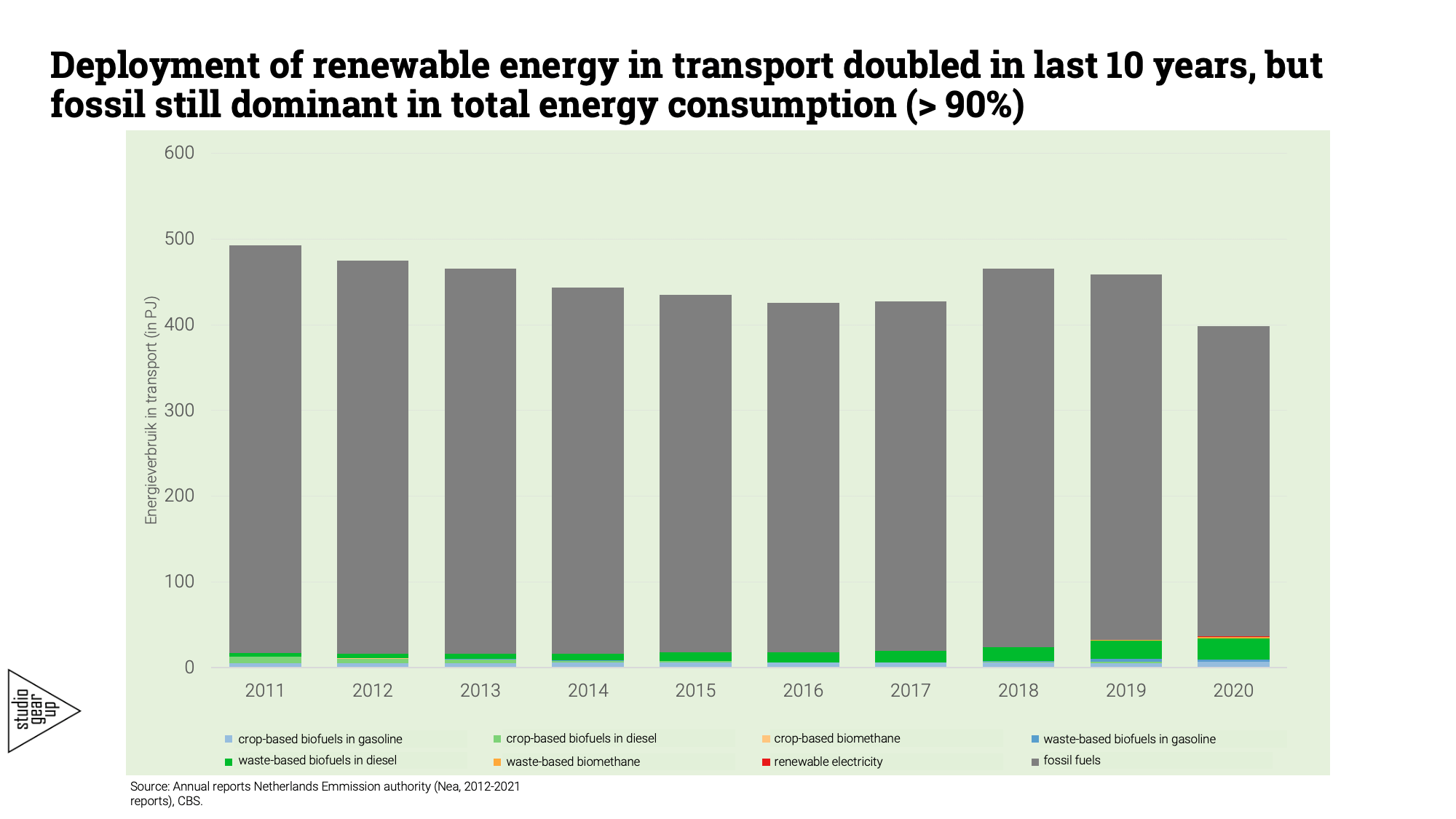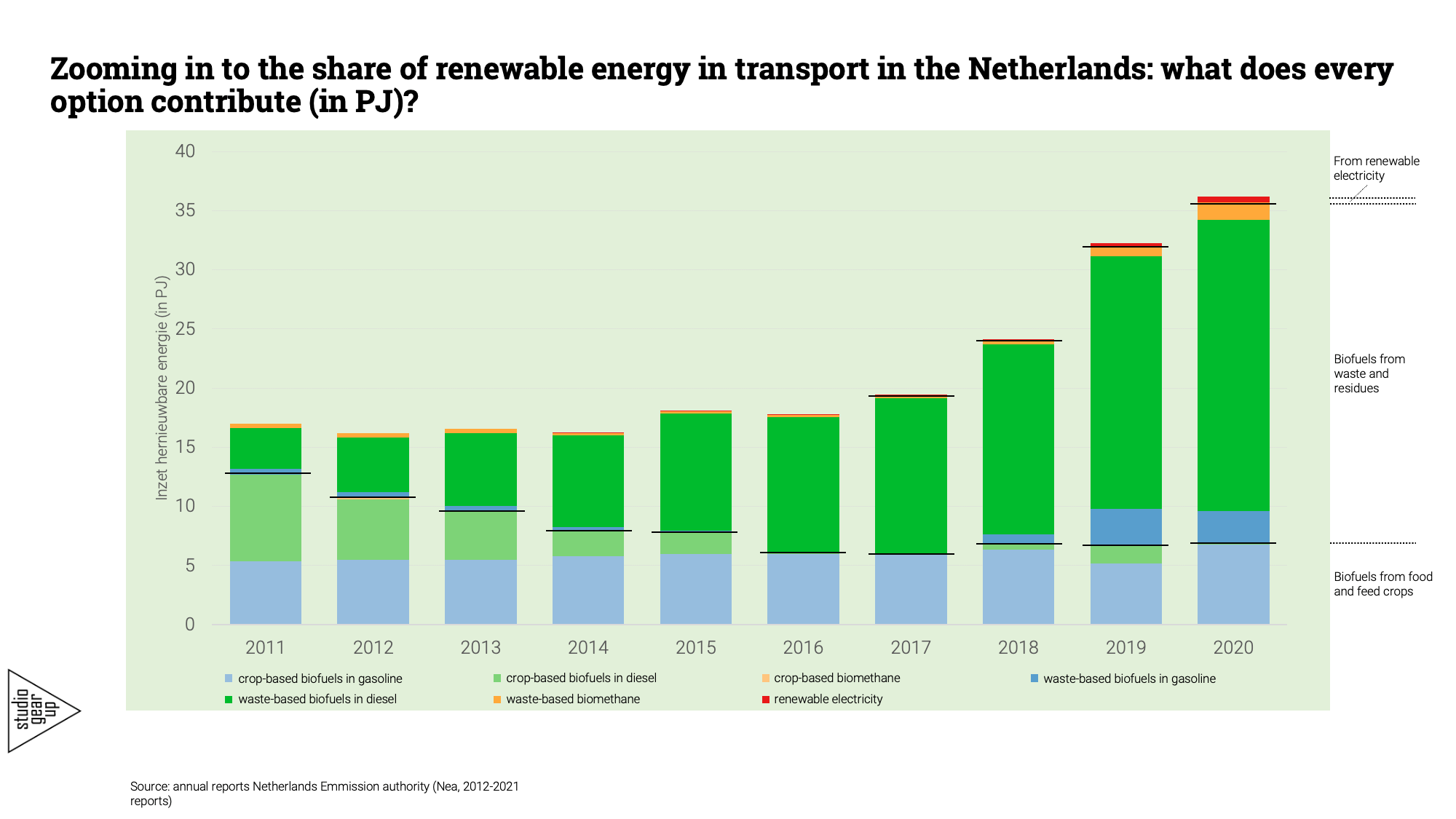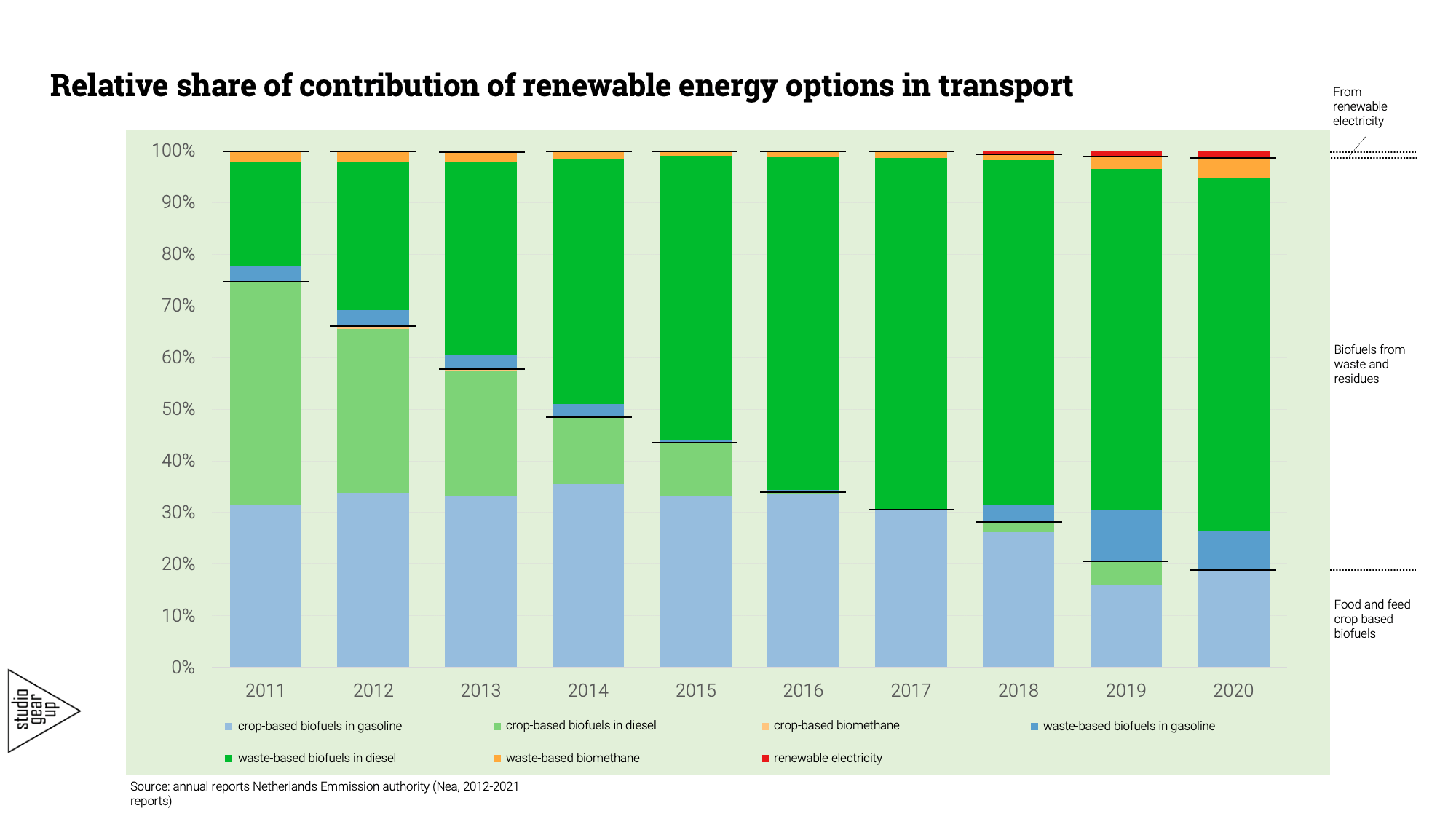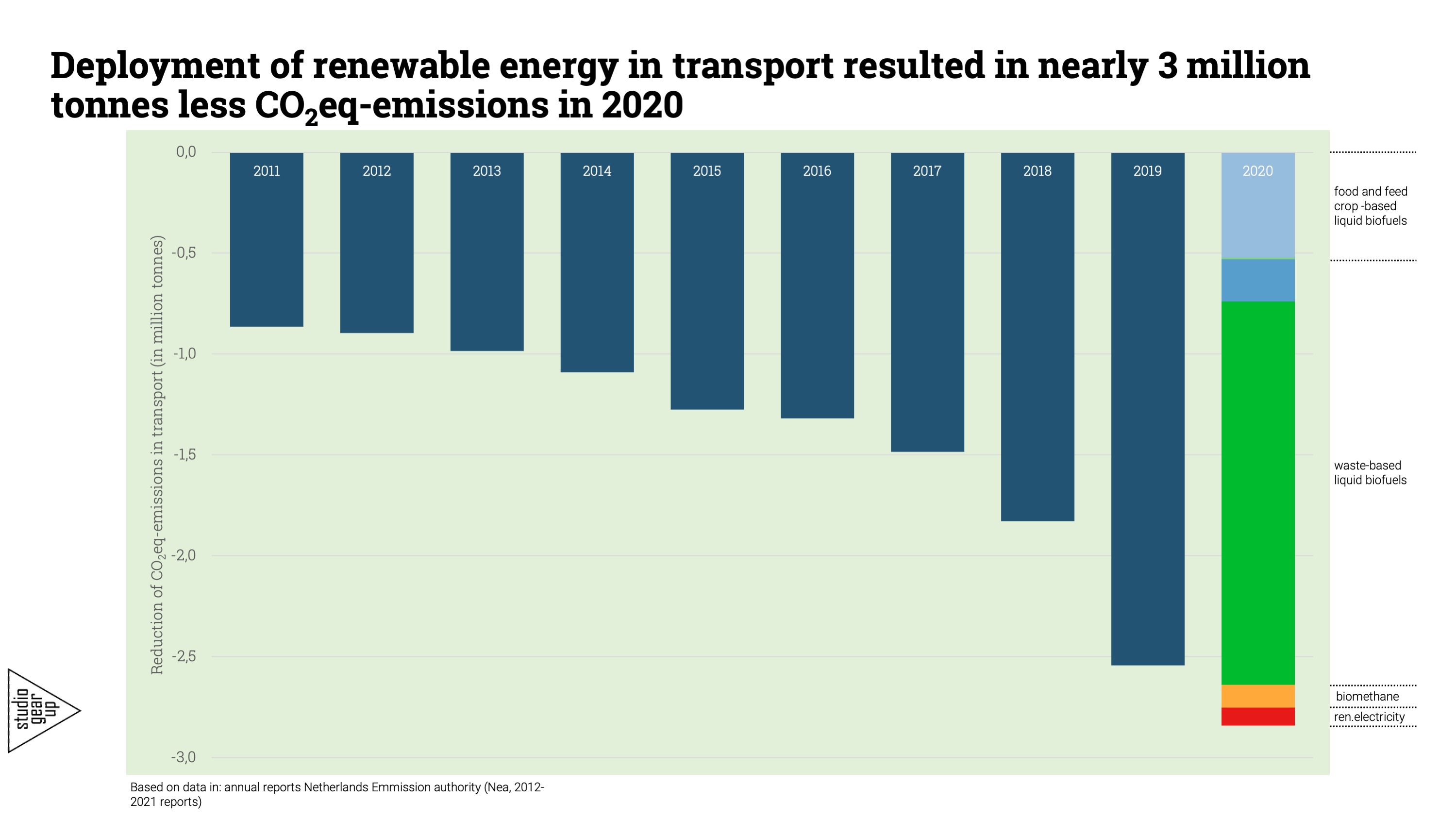From 2011 to 2020 the share of renewable energy in the Dutch transport sector grew from 3,4% to 9,1%. This is a big achievement but yet the inconvenient reality is that still more than 90% of energy used in transport is still from fossil source (see Figure 1).

In national reporting to the European Commission, the Netherlands reports 16,5% for the year 2020 – but this is the result of applying an administrative multiplier forcertain types of renewable energy, like is the case for waste-based biofuels and renewable electricity. The double counting was introduced by the European commission to favor these renewable options. In particular this stimulated growth in deployment of waste based biofuels, as they have become the most deployed renewable option in transport. Figure 2 shows this growth, which is the result of clear policy focus of the Netherlands government. The absolute volume of food and feed crop based biofuels decreased and from 2016 onward remained quite stable (at around 5-6 PJ). In the earlier years of the past decade the sector ended using food and feed crop based biofuels in the diesel sector and replace it with biofuels from used cooking oil and, to a lesser extent, animal fats. The biofuel substituting gasoline remain predominantly food and feed crops based, though in recent years waste-based ethanol and nafta are entering the market as well. (studio Gear Up executed in 2021 a detailed study for the NL government on the countries of origin of food and feed crop based biofuels, read more here).
Figure 2 below shows the physical volumes of the various renewable energy options used in the Netherlands transport sector, summing up to 36,2 PJ (data based on annual reports by the Netherlands Emission Authority, NEa). NEa reports annually and focussed on the administrative numbers, including double counting for waste based biofuels. As a result, the Netherlands government reported 65,7 PJ for the year 2020 to the European Commission.

The strong growth in absolute numbers, reflects that the relative share of waste-based biofuels in the past years has grown significantly. In 2011 their share was just above 20%, while in 2022 its share had grown 80% (see Figure 3).
Remarkable is also that the contribution of renewable electricity is still quite moderate. Though the market introduction of battery electric vehicles has shown significant growth figures, with around 20% share in registrations of new passenger vehicles in 2020 and 2021 their share in the total passenger fleet is still quite small and will reach – based on policy projections for 2030 – around 1 million in a fleet of, by then, 10 million passenger cars (PBL, KEV21, published October 2021). Furthermore, the share of renewable electricity in total production in the Netherlands is still less than in most other EU Member States. Policy targets are to reach 70% share of renewable electricity by 2030.

Figure 4 show how the deployment of renewable energy in transport resulted in lowering the CO2eq-emissions from transport by nearly 3 million tonnes of CO2eq in 2020. The graph shows, in line with the information of previous Figures that the majority of that emission reduction is achieved by the deployment of biofuels, and in particular the waste based biofuels. Still, as is clear from Figure 1, as long as fossil remains dominant and does not be curbed downward sharply, the absolute emissions of CO2 will stay far above Paris-proof levels.
It is therefore necessary that the share of renewable energy in the coming dace needs to drastically increase. While we will see the further necessary growth of Battery Electric Vehicles, at the same time shifting liquid fuels quickly from fossil based to renewable based is urgently needed to double or triple the reduction of CO2-emissions in the next years. So market and policy parties have to take that message into account when preparing their next steps.


